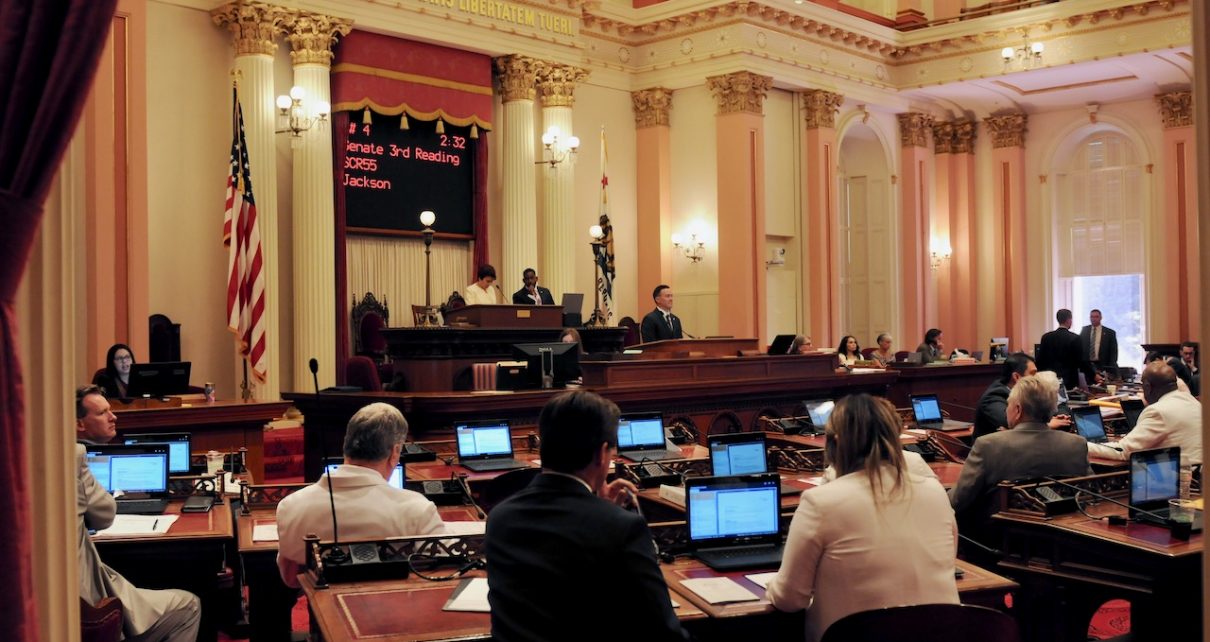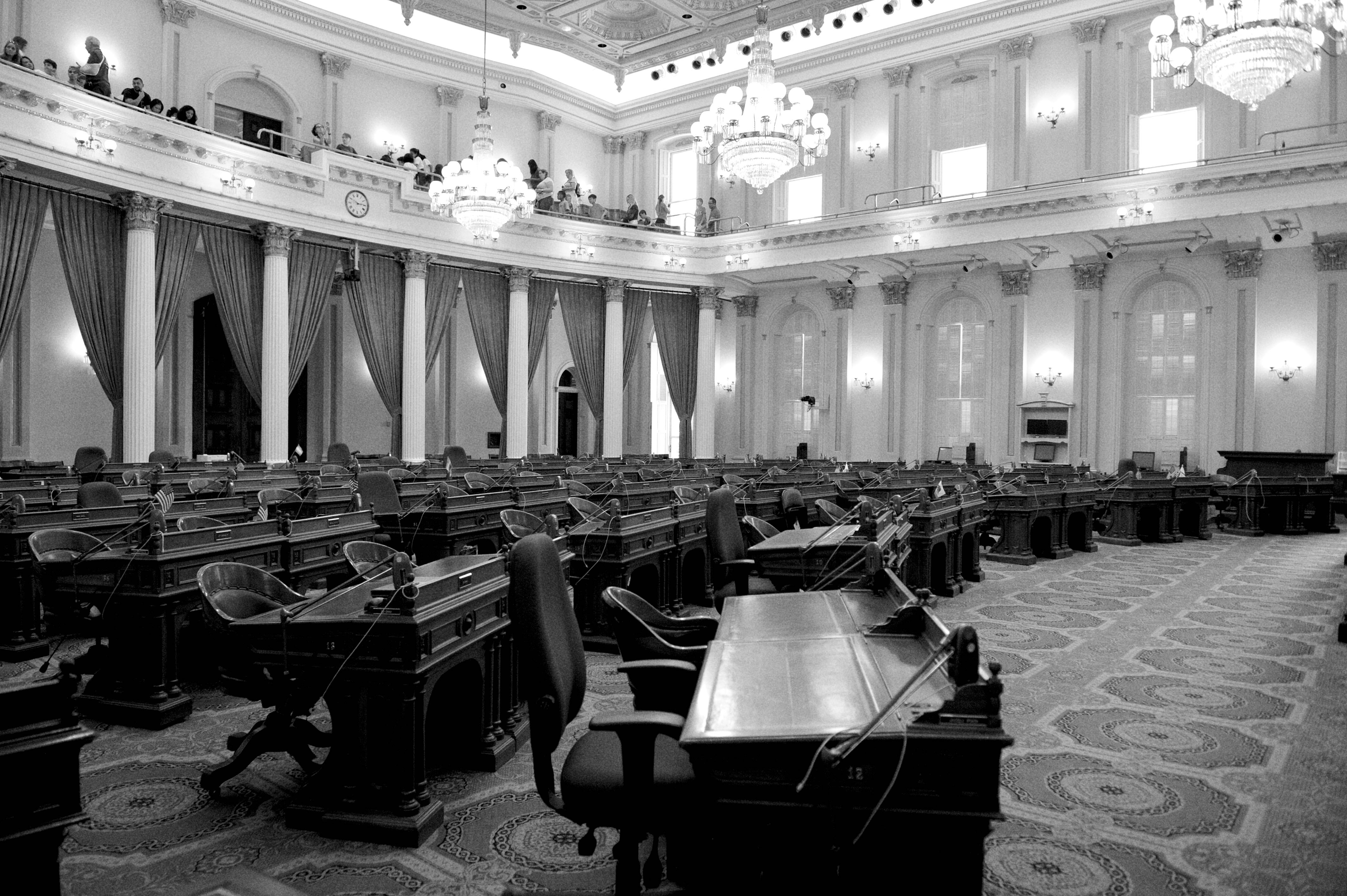
California State Senate. (Photo: Kevin Sanders for California Globe)
Reconsideration of Bills
An action taken by a committee may not be reconsidered except by a majority vote of the members of the committee
By Chris Micheli, March 20, 2020 8:56 am
When a bill in the California Legislature fails passage either in committee or on the floor of the Assembly or Senate, it can be granted “reconsideration.” According to the Legislative Counsel, reconsideration means a motion giving the opportunity to take another vote on a matter previously decided in a committee hearing or floor session.
This is an important rule because it provides a legislator another opportunity to return to his or her colleagues seeking a “second bite at the apple.” After a committee has voted on a bill, reconsideration may be granted only one time. Pursuant to Joint Rule 62(a), reconsideration may be granted within 15 legislative days or prior to the interim study joint recess, whichever occurs first.
A vote on reconsideration may not be taken without the same notice required to set a bill for hearing unless that reconsideration vote is taken at the same meeting at which the vote to be reconsidered was taken and the author is present. An action taken by a committee may not be reconsidered except by a majority vote of the members of the committee. Reconsideration is usually granted by unanimous consent as a courtesy to a bill author.
Assembly Process
In the Assembly, a motion to reconsider on the next legislative day the vote whereby any bill was passed or refused passage, or the vote on any motion, amendment, concurrence, Assembly resolution or proposition other than a bill was passed or refused passage, must be made on the same day that the vote to be reconsidered was taken. On the Assembly Floor, no motion to reconsider can be adopted unless it receives an affirmative recorded vote of 41 Assembly Members.
Upon making a motion for reconsideration, the question or measure to be reconsidered is placed upon the unfinished business file in the Assembly Daily File, and no further action can be taken prior to the next legislative day. A motion to reconsider which is neither taken-up nor continued on file lapses after a specified time.
Once a reconsideration motion has lapsed, the question or measure returns to the same position it held prior to the motion being made. When reconsideration is granted, the matter to be reconsidered resumes its exact position before the Assembly voted on the question. The author may take it up immediately after reconsideration is granted.
Senate Process
In the Senate, the procedure differs slightly. A motion to reconsider any question may be made by any Senator on the day on which the vote was taken. The motion may be considered on the day it is made, or on the succeeding legislative day, but it may not be further postponed without the concurrence of 30 Senators.
In the Senate, bills may be reconsidered by a majority vote (21) even though the bill required a two-thirds majority vote (27) for passage. Constitutional amendments that are adopted can be reconsidered by 14 votes, while constitutional amendments that have been defeated require a two-thirds vote (27) for reconsideration.
According to the Senate Rules, on the day on which a vote has been taken on any question, a motion to reconsider the vote may be made by any Senator. Reconsideration may be granted only once. The motion may be considered on the day it was made or on the succeeding legislative day, but may not be further postponed without the concurrence of 30 Senators on the Senate Floor.
Reconsideration can serve as a valuable tool to legislators and interest groups in order to allow modifications to a measure to address why a measure initially failed passage. For those opposed to the measure, however, it means remaining vigilant to ensure that the bill does not get revived in a manner that results in continued opposition.
- Pacific Marine Fisheries Compact - February 24, 2026
- Relations of LLC Members and Managers - February 24, 2026
- This Is an Interesting Limit on Rulemaking Power - February 23, 2026




